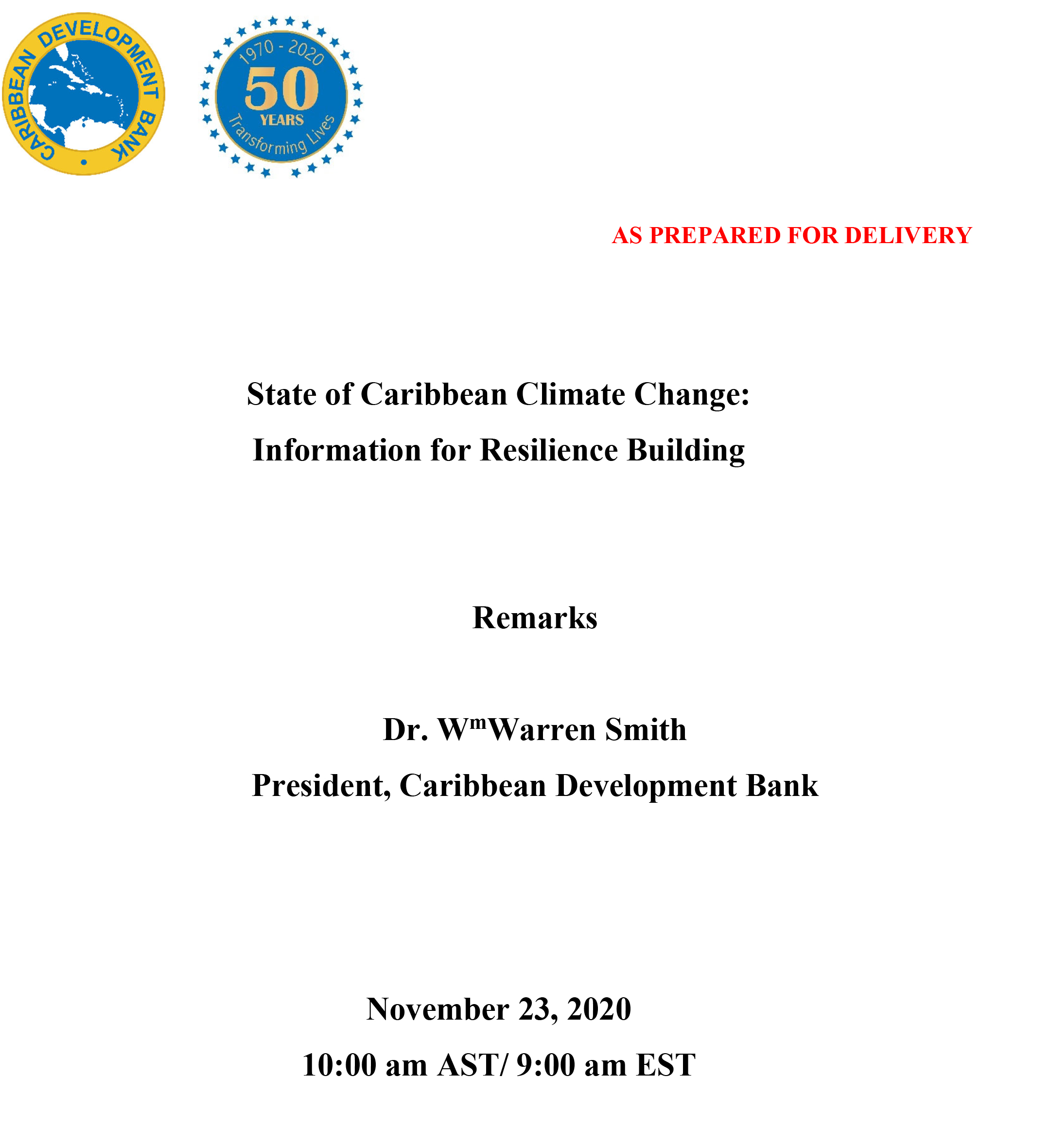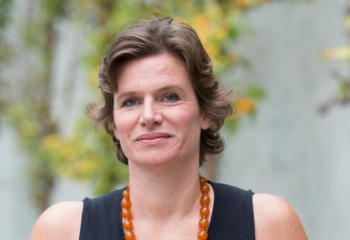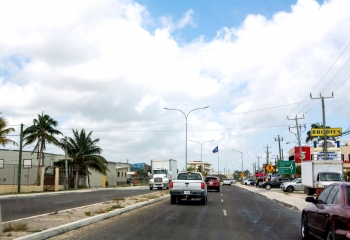Launch of the State of Caribbean Climate Change 2020

Today’s launch of the State of the Caribbean Climate Report is a momentous occasion; and I am extremely honoured to be a part of it.
We do not need be reminded about the significance of climate change for our Region. We have watched, unfolding before our eyes, predictions that climate events would become more variable, more intense and more damaging for the predominantly small island states of the Caribbean. In the past three years, I joined two CARICOM missions to witness first-hand the damage and destruction, caused by Hurricane Maria on Dominica and Hurricane Dorian on the Bahamas.
These front-row views of the catastrophic impact of hurricanes reinforced my own conviction that climate change must remain at the top of CDB’s assistance agenda and underscored the urgency of Caribbean governments building resilience to climate change.
The Report on the “State of the Caribbean Climate,” therefore, holds special significance for CDB. I commend Professor Taylor for leading his team of specialists who crafted this Report. It contains a wealth of very current climate data to inform evidence-based planning, design and implementation of appropriate adaptation measures.
We can add it, with pride, to the body of high-quality reference material produced for our Region.
CDB continues to play its part in our Region’s response to climate change by providing appropriate financial and technical assistance to our borrowing member countries.
What has been our response to date?
We mobilised US$450 million to offer increased access to concessional financing for disaster risk management and climate resilience.
We introduced new tools, particularly in the water and transport sectors, and facilitated access and use of more robust climate data to better analyse and assess risks.
We revamped our internal processes so that all our investment operations are screened for climate and hazard risks.
In addition, ongoing policy dialogue and work programmes emphasise close alignment with the Paris Agreement and our support for Caribbean countries’ Nationally Determined Contributions under this Agreement.
Finally, as a regional organisation accredited to both the Green Climate Fund and the Adaptation Fund, we are working very closely with our members to ensure that they gain access to resources available from these two agencies.
I have just outlined a subset of the initiatives by CDB to support our Region’s climate change agenda. Many of these initiatives were undertaken in conjunction with development partners, which share common aspirations for eliminating poverty, and erasing inequality in this Region.
We wish to make specific mention of the African Caribbean Pacific-European Union-CDB Natural Disaster Risk Management (ACP-EU-CDB NDRM) in CARIFORUM Countries Programme funded by the EU. Through this €12.3 million programme, we have provided grants to strengthen the capacity of institutions responsible for disaster risk management, weather and climate monitoring, and forecasting as well as designing and delivering products and services.
Beneficiaries include the Caribbean Disaster Emergency Management Agency, the Caribbean Institute for Meteorology and Hydrology, Climate Studies Group Mona, and the National Hydrometeorological Services.
We have funded the development of a tourism policy for the Caribbean Tourism Organisation, and a climate change policy for the Office of Climate Change in Guyana.
We have designed and implemented customised tools for multi-hazard risk assessment and climate resilience for key economic sectors, including water, road transport and tourism.
The State of the Caribbean Climate Report, delivered through the ACP-EU-CDB NDRM in the Cariforum Countries Programme will provide the technical support for planning and decision-making.
CDB is pleased to have been a part of a very productive partnership and looks to other successful collaborations in the future.
Before I close, I wish to make two important points which should underpin our future work on climate change.
First, early investment can reduce economic damage and loss of lives to disasters. Therefore, Caribbean countries must take early action and receive the full support of the development agencies in planning, implementing safeguard measures, and investing in the appropriate climate resilient infrastructure.
Second, climate change adaptation and mitigation are most effective when they are fully integrated into a comprehensive and sustainable development framework.
Colleagues, 50 years ago, CDB committed to reducing poverty and inequality in our Region. Today, we remain unwavering in our quest, and are committed to do so through our ongoing support for initiatives to create more inclusive, green and climate-resilient sustainable development. We are even more confident that by working alongside partners like the EU, CARIFORUM and UWI, we can transform our Region and put each country onto a solid path of resilience and sustainability.



